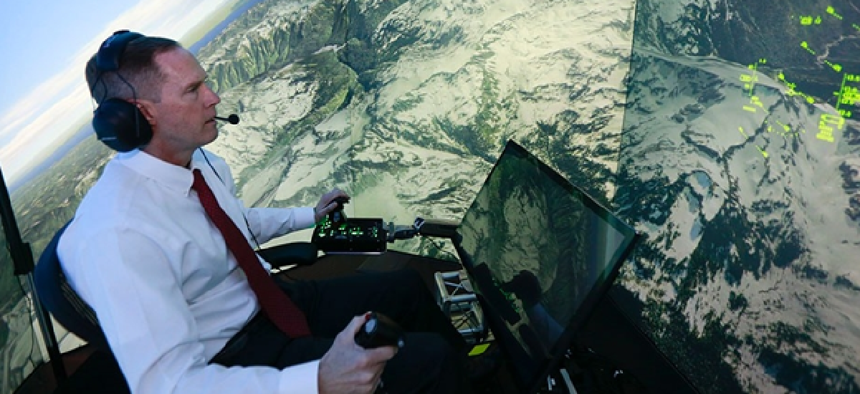When AI goes Top Gun

Researchers have developed a fuzzy-logic system that out-flies an expert fighter pilot.
First it was Deep Blue and chess. Then Watson won "Jeopardy!" Now an artificial intelligence dubbed ALPHA has bested a highly skilled human fighter pilot in simulated aerial combat.
And while Deep Blue and Watson relied on massive, multi-million-dollar computer systems, ALPHA requires less computing power than is found in a $35 Raspberry Pi.
The AI algorithm, which relies on "Genetic Fuzzy Tree methodology," was developed by University of Cincinnati computer scientists with support from the Air Force Research Laboratory. The AI methodology and the results of the flight-simulator dogfight are detailed in the latest issue of the Journal of Defense Management.
The project, according to the team members, is intended to control unmanned aerial systems in simulated air-combat missions for research purposes. "Within the context of air-to-air combat," they wrote in the Journal of Defense Management article, "millisecond long timeframes for critical decisions inhibit remote operation" of drones, and human pilots' reaction times often cannot keep pace with the high-powered aircraft they fly. As a result, "there is a huge window of improvement that an Artificial Intelligence (AI) can capitalize upon."
The University of Cincinnati's UC Magazine also reported on the research, and quoted retired U.S. Air Force Col. Gene Lee -- who battled ALPHA in the flight simulator -- calling it “the most aggressive, responsive, dynamic and credible AI I’ve seen to date.”
Lee was reportedly shot down by ALPHA during every protracted engagement in the simulator.
The AI is still in its early developmental stages, but the journal article notes that "ALPHA is taking in an enormous amount of data from the system. ... Examples of inputs include all positional, velocity, and acceleration states, estimated missile range data, visibility of each platform, bogey ratio, and number of shots taken by hostile platforms." It also is "capable of controlling any finite number of friendly aircraft."
The ALPHA team suggests that the AI could one day power autonomous "wingmen" -- drones that accompany piloted aircraft and engage in maneuvers that would push the physical limits of human pilots. UC aerospace professor Kelly Cohen told UC Magazine that ALPHA could also serve as the ultimate navigator -- continuously determining "the optimal ways to perform tasks commanded by its manned wingman, as well as [providing] tactical and situational advice to the rest of its flight."





